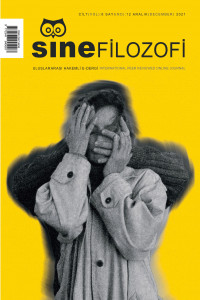Mikhail Bakhtin’in Kronotop Kavramı Bağlamında Kalandar Soğuğu (2015) Filmi
The Movie Kalandar Soğuğu (2015) In The Context Of Mikhail Bakhtin’s Chronotope Concept
Author(s): Ayşegül KonakSubject(s): Gender Studies, Semiotics / Semiology, Film / Cinema / Cinematography, Theory of Literature, Sociology of Art
Published by: Serdar Öztürk
Keywords: Bakhtin; chronotope; cinema; Kalandar Sogugu; space; province; masculinity;
Summary/Abstract: A literary critic and theorist Mikhail Bakhtin has added a significant value to literary criticism, especially with his new perspective on novel studies. Bakhtin, who brought the concepts such as carnival, dialogy, and polyphony into the literature, tried to determine the common features in the novels he studied through these concepts. The concept of chronotope, which is the subject of this study, is another important concept belonging to Bakhtin. Chronotope means time-space and refers to the crucial points at which time and spaces intersect in the narrative, and which have historical, social and cultural meanings in terms of narrative. Although these concepts created by Bakhtin are frequently used today for literary criticism, they also create an eye-opening view for other branches of art. The use of Bakhtin’s concepts in the art of cinema to examine the film narrative is not as common as in literature. This study aims to determine the chronotopes in Mustafa Kara’s film Kalandar Cold (2015) in the light of Bakhtin’s conceptualization and to make a sociological reading through these chronotopes. It has been determined that the chronotopes that make up the narrative in the film are the countryside, mountains and caves, bullfights and mines, and it is concluded that these chronotopes form a perspective on the new provincial discourse and the concept of masculinity, which are frequently encountered in recent Turkish Cinema.
Journal: SineFilozofi
- Issue Year: 6/2021
- Issue No: 12
- Page Range: 1143-1160
- Page Count: 18
- Language: Turkish

